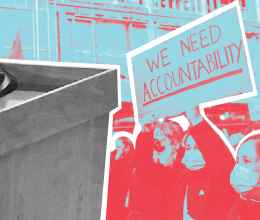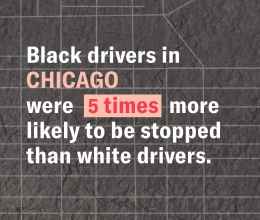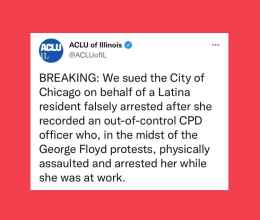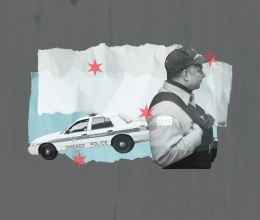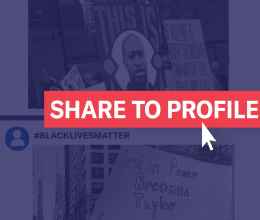
The below statement can be attributed to Nusrat Choudhury, legal director at the ACLU of Illinois:
“The Consultant’s public report on stop-and-frisk by Chicago police officers is a critical reminder of the need for vigorous enforcement of the ACLU’s agreement first reached with the City in 2015.
While we have seen the raw numbers of Chicago police stops and frisks fall dramatically since 2015, the proportion of these intrusive police encounters that involve Black Chicagoans has remained far too high. From 2016 to the present, Black people account for 69% of pedestrian stops, despite representing just 30% of the City’s population in 2019. We are also concerned about the skyrocketing number of Chicago traffic stops from less than 90,000 in 2015 to nearly 600,000 in 2019 – with more than 83% of the 2019 traffic stops targeting Black and Latinx motorists. As we have seen in Chicago and around the country, when police stop Black and Brown people – whether in a pedestrian or traffic stop – too often, the result is needless escalation, the use of force, and even death.
We are pleased that the Monitor in charge of the Chicago Police consent decree will serve as the Consultant on this agreement and will closely examine data, policies, and training concerning when and how Chicago police stop and frisk people. We are especially heartened that the Consultant team is committed to engaging community members in this process – particularly people from Black and Brown communities most impacted by police stops, frisks, and searches. This process must move expeditiously.
We warned years ago that pedestrian stops were simply a pretext for Chicago police to search, question, and harass Black and Brown men in our City. The Chicago Police Department’s current system for overseeing pedestrian stops and reporting the reasons for these stops does not ensure that police do not stop and frisk Black and Brown Chicagoans without legal justification or based on race or ethnicity. And, as noted, Chicago’s dramatic, more than six-fold increase in traffic stops that disproportionately impact Black and Latinx people has never been explained.
Such practices must be rooted out and vigorous enforcement of the stop-and-frisk agreement with the engagement of Chicago communities is one way to advance this end.”
